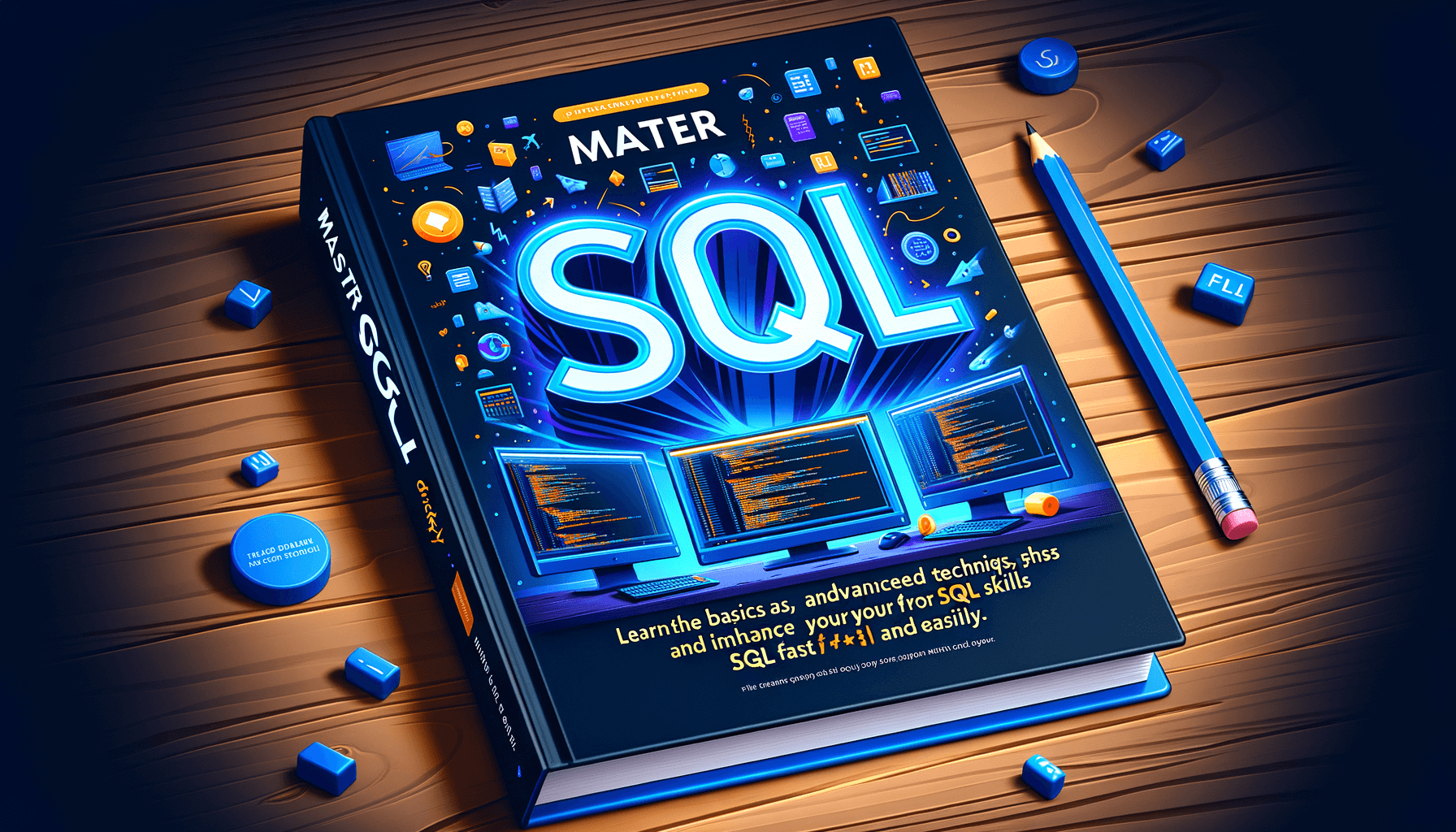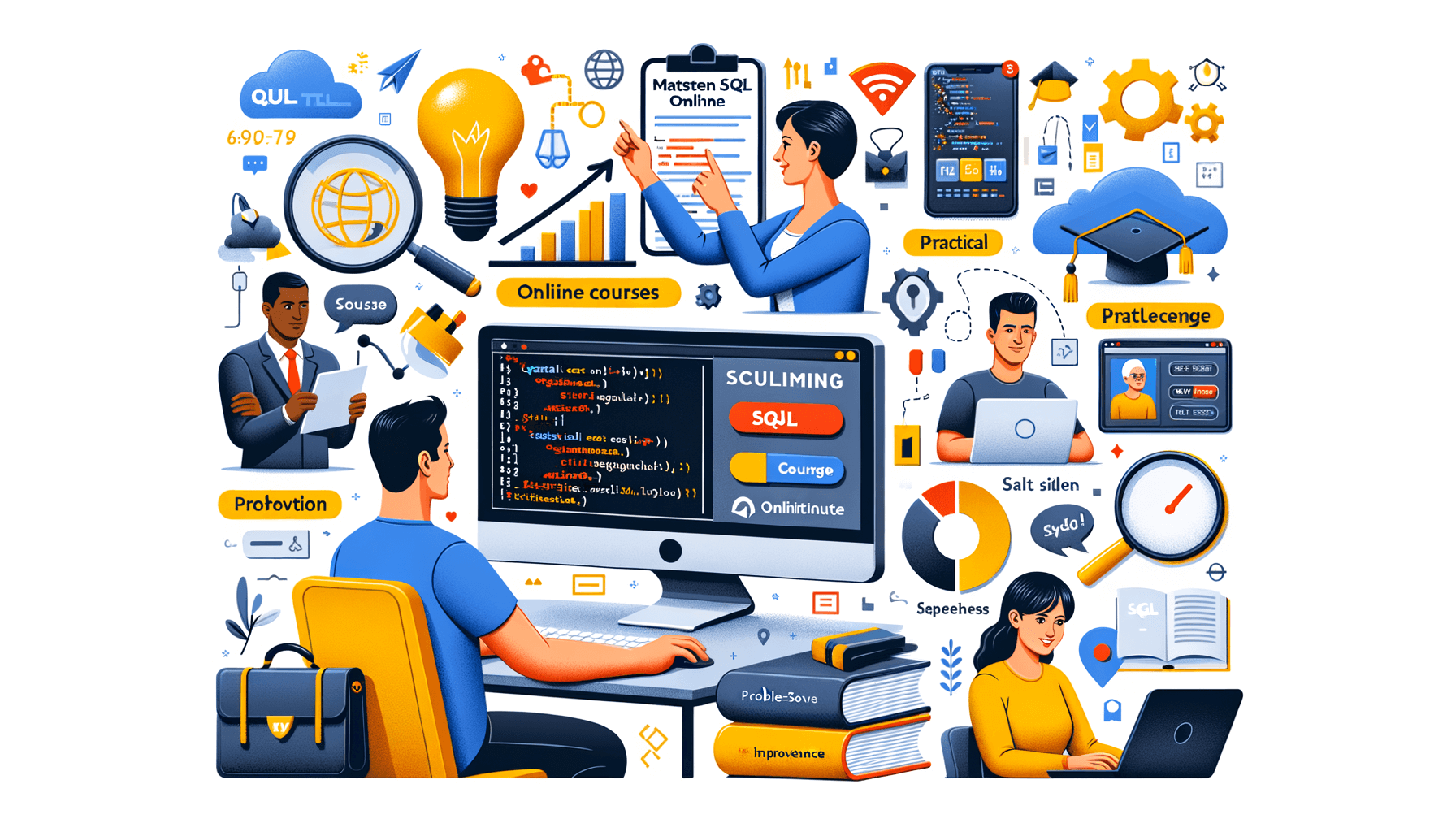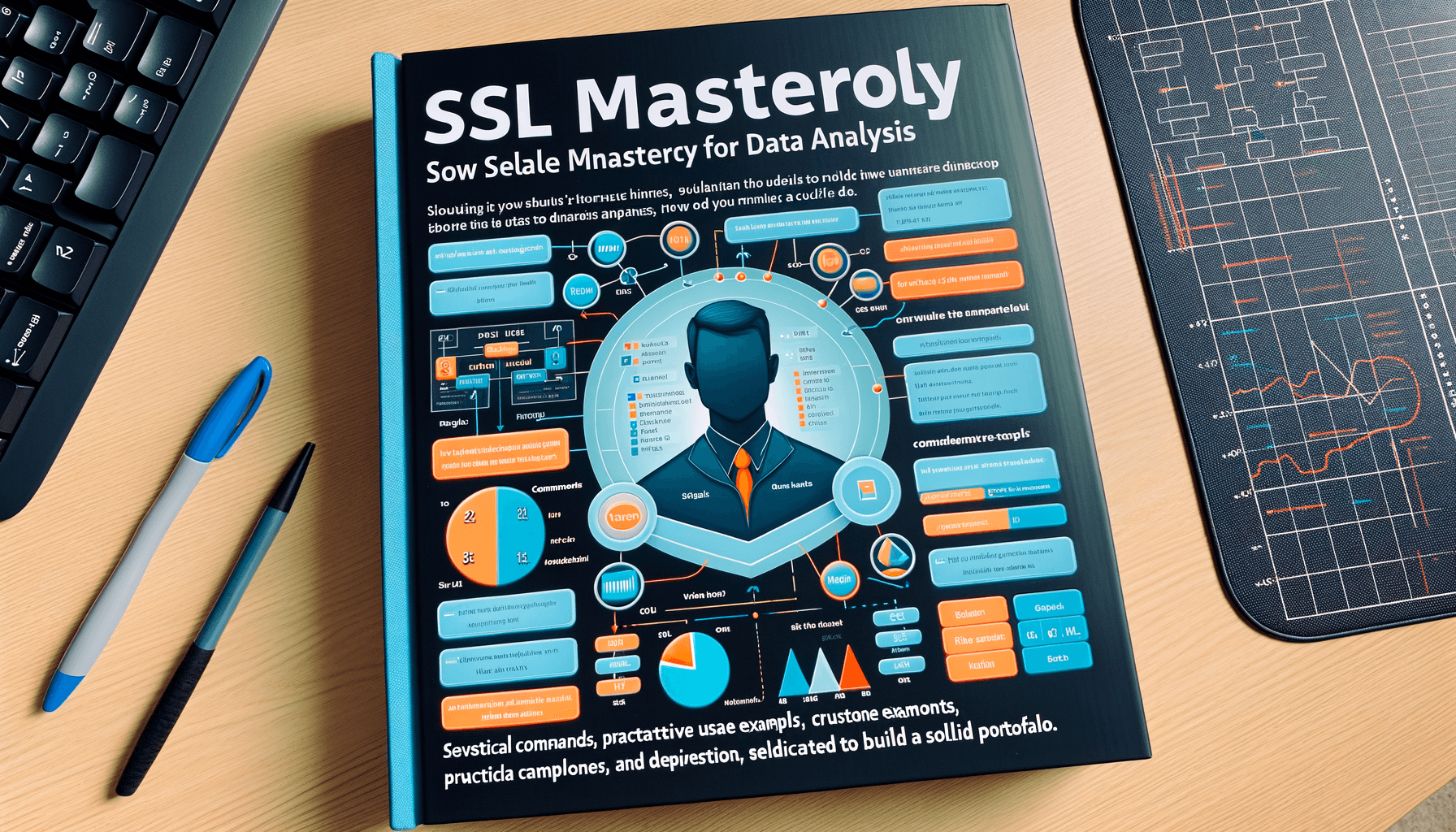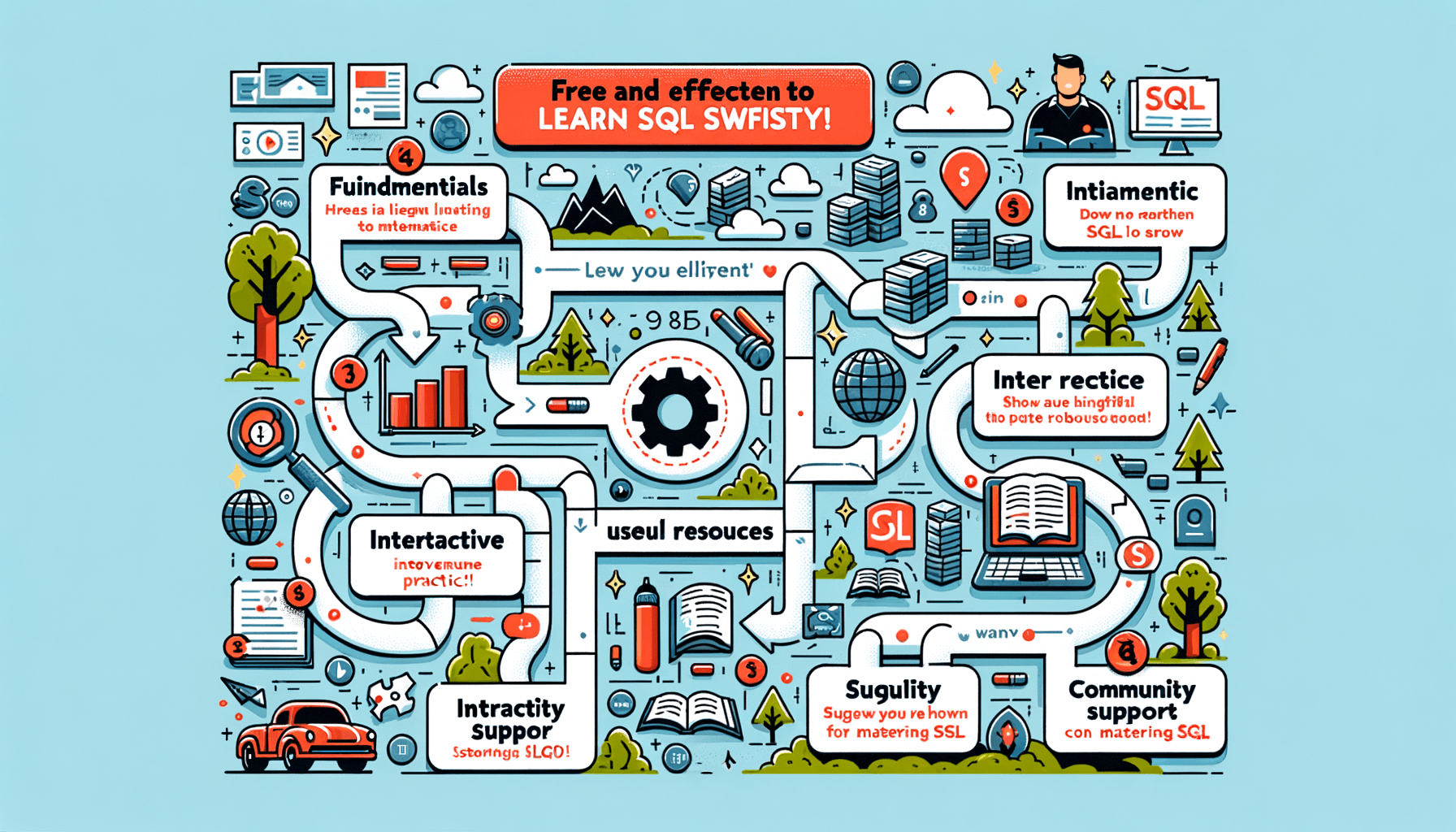A big variety of articles and resources

Master SQL Quickly: Learn SQL Fast and Easy
 Sia Author and Instructor
Learn SQL
Sia Author and Instructor
Learn SQL
7 minute read
Understanding the Basics of SQL
What is SQL?
SQL, or Structured Query Language, is a powerful tool designed for managing and manipulating databases. SQL is designed to be intuitive and straightforward, making it accessible to professionals from all fields. Its syntax is logical and easy to understand, which makes it a great starting point for anyone new to programming or data analysis.
Why Learn SQL?
Learning SQL opens numerous doors in various fields such as data analysis, web development, and database management. Data Analyst - Introduction to SQL course offers beginner-friendly SQL training with real-world applications, enhancing data analysis skills for job opportunities and career advancement.
Core SQL Commands
SQL commands are the building blocks of all SQL queries. These commands allow you to create, modify, and query data in a database. Here are some essential SQL commands:
- SELECT: Retrieves data from a database
- INSERT: Adds new data to a database
- UPDATE: Modifies existing data
- DELETE: Removes data
SQL is often the first language taught in many data analysis and computer science programs because of its simplicity and practicality.
Choosing the Right Learning Resources
Books vs. Online Courses
When deciding between books and online courses for learning SQL, consider your learning style and schedule flexibility. Books offer deep dives into SQL concepts at your own pace, while online courses provide interactive experiences and immediate feedback. Both have their merits, but the choice depends on your personal preference and learning goals.
Recommended SQL Books
To get started, here are a few highly recommended SQL books:
- "Learning SQL" by Alan Beaulieu
- "SQL in 10 Minutes, Sams Teach Yourself" by Ben Forta
- "SQL Cookbook" by Anthony Molinaro
These books are praised for their clear explanations and practical examples.
Interactive Online Platforms
Interactive platforms like Udemy offer a vast range of SQL courses tailored for beginners to advanced users. These platforms often include hands-on learning, which is crucial for mastering SQL. They also provide resources like integrated reference docs and success stories, making the learning process comprehensive and engaging.
Practical Tips to Learn SQL Fast and Easy
Setting Realistic Goals
Set achievable milestones to keep yourself motivated and track your progress. Start with the basics and gradually move to more complex queries. Establishing clear, measurable goals can significantly enhance your learning efficiency.
Daily Practice Routines
Consistency is key in mastering SQL. Dedicate specific times each day for practice. Use problems from online platforms to improve your skills and apply what you've learned in real-world scenarios.
Utilizing Online Forums and Communities
Engage with other learners and experts in online SQL communities. This interaction can provide you with valuable insights, help in solving problems, and accelerate your learning process. Remember, the more you connect, the faster you learn.
Advanced SQL Techniques for Experienced Users
Complex Queries
Mastering complex queries is essential for experienced SQL users. Learn powerful functions for performing complex database operations with ease. Expand your SQL skills by creating and manipulating databases with multiple related tables.
Optimizing SQL Performance
Optimizing SQL performance involves understanding and applying advanced indexing and query strategies. Focus on writing efficient SQL queries that minimize resource consumption and maximize speed.
Security Best Practices
Adhering to security best practices is crucial in protecting data integrity and preventing unauthorized access. Implement robust security measures such as encryption, proper authentication, and SQL injection prevention techniques.
Overcoming Common Challenges in Learning SQL
Debugging SQL Errors
Debugging SQL errors can be a daunting task, especially for beginners. It's crucial to understand the error messages and know where to look for solutions. A systematic approach to debugging can help you resolve issues more efficiently. Start by checking the syntax, then verify the data types and finally, ensure that the logic of your query aligns with your data structure.
Dealing with Complex Data Structures
When you encounter complex data structures, it's important to break down the problem into manageable parts. Use diagrams or tables to visualize the relationships and dependencies. This can significantly simplify the process of writing and debugging SQL queries. Here's a simple example of how to represent a basic relational database:
| Table | Columns | Relationships |
|---|---|---|
| Users | ID, Name, Email | Primary Key: ID |
| Orders | ID, User_ID, Product, Quantity | Foreign Key: User_ID links to Users |
Time Management for Learning
Effective time management is essential when learning SQL. Set realistic goals and create a daily or weekly schedule to practice. Allocate specific times for learning new concepts and other times for reviewing and practicing what you've learned. This structured approach will help you make steady progress and avoid feeling overwhelmed.
The Role of SQL in Modern Development
SQL in Web Development
SQL is integral to web development, powering the databases behind dynamic websites. SQL's ability to manage vast amounts of data efficiently makes it ideal for web applications that need to handle frequent data interactions. It's used in conjunction with languages like JavaScript and PHP to deliver a seamless user experience.
SQL with Other Programming Languages
SQL interacts seamlessly with various programming languages, enhancing its utility in software development. For instance, it's commonly used alongside Java, Python, and Ruby, proving essential for backend data management. This versatility ensures that SQL skills remain in high demand across multiple programming disciplines.
Future Trends in SQL
The future of SQL looks promising with ongoing developments aimed at enhancing its performance and integration capabilities. As data continues to drive decision-making in businesses, SQL's role is only expected to grow, adapting to new technologies and expanding its influence in the data-driven world.
How to Validate Your SQL Skills
Certifications and Courses
Earning a certification is a concrete way to validate your SQL skills. It not only enhances your resume but also boosts your confidence in handling real-world SQL tasks. Many platforms offer certifications, ranging from beginner to advanced levels, ensuring there's something for everyone. Consider enrolling in a certification course that aligns with your career goals and skill level.
Building a Portfolio
A well-crafted portfolio showcasing your SQL projects can speak volumes about your capabilities. Include a variety of projects that demonstrate your ability to handle different data scenarios and complexities. This will make your portfolio appealing to potential employers or freelance clients. Highlight specific projects that had significant business impacts to stand out.
Getting Feedback from Peers
Feedback from peers who are also skilled in SQL can provide invaluable insights into your work. Engage in online forums and communities where you can share your SQL projects and receive constructive criticism. This not only helps you improve but also keeps you updated with the latest SQL techniques and practices.
Conclusion
Mastering SQL can be a swift and rewarding journey with the right resources and approach. Whether you choose to learn through online courses, books, or YouTube tutorials, the key is consistent practice and application. By dedicating time to understand the fundamentals and progressively tackling more complex queries, you can become proficient in SQL in a matter of months. Remember, every expert was once a beginner, and with persistence, you too can master SQL and enhance your career in the tech industry.
Frequently Asked Questions
What is SQL?
SQL (Structured Query Language) is a programming language used for managing and manipulating relational databases.
How fast can I learn SQL?
You can learn the basics of SQL relatively quickly, often within a few months of part-time study. Becoming proficient, however, requires more time and practice.
What are the best ways to learn SQL?
The best methods include online courses, interactive tutorials, books, and YouTube videos. Interactive online platforms are particularly effective for fast learning.
Can I learn SQL without prior coding experience?
Yes, SQL can be learned without prior coding experience. Starting with basic tutorials and gradually moving to more complex topics is a recommended approach.
What are some recommended SQL books?
A highly recommended book is 'Sam’s Teach Yourself SQL in 10 Minutes,' which covers essential SQL commands and fundamentals.
What are common challenges when learning SQL?
Common challenges include debugging SQL errors, dealing with complex data structures, and finding enough time for consistent practice.
Related Articles

10 Effective Tips on How to Learn SQL Online
9 minute read

A Comprehensive Guide to Learn SQL for Analysts
8 minute read


